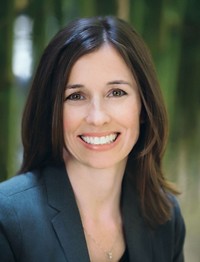Advertisement
Grab your lab coat. Let's get started
Welcome!
Welcome!
Create an account below to get 6 C&EN articles per month, receive newsletters and more - all free.
It seems this is your first time logging in online. Please enter the following information to continue.
As an ACS member you automatically get access to this site. All we need is few more details to create your reading experience.
Not you? Sign in with a different account.
Not you? Sign in with a different account.
ERROR 1
ERROR 1
ERROR 2
ERROR 2
ERROR 2
ERROR 2
ERROR 2
Password and Confirm password must match.
If you have an ACS member number, please enter it here so we can link this account to your membership. (optional)
ERROR 2
ACS values your privacy. By submitting your information, you are gaining access to C&EN and subscribing to our weekly newsletter. We use the information you provide to make your reading experience better, and we will never sell your data to third party members.
Policy
In the room where it happens: Science and policy
by Laura E. Pence, District I Director, ACS Board of Directors
May 22, 2017
| A version of this story appeared in
Volume 95, Issue 21
As scientists, we need to become just as comfortable engaging our elected officials in policy discussions as we are at home in our own laboratory and office comfort zones. Science and policy are most effective when they work in concert and allow the knowledge of each area to inform the other.
An immediate challenge to this science-informing-policy idea is that as scientists, we are fundamentally trained to be impartial. I teach my undergraduate students to write their lab reports in the third person just as manuscripts are written because the data should be the same regardless of who collects and interprets them. Our scientific integrity and respect from society rely on making every attempt to conduct unbiased work and to avoid prejudicing results in one way or another based on our personal preferences for an outcome.
On first examination, science advocacy—which specifically seeks to inform an outcome—contradicts the fundamental principles of science. On second examination, however, we need to speak for our data and present them accurately and effectively. “Let the data speak for themselves” is an excellent strategy when writing results and discussions for our scientific colleagues to read, but it is far less effective when nonscientists such as policy-makers need to understand and use data to make well-informed decisions. As scientists, we have a responsibility to interpret data for people who make laws and regulations.
The recent March for Science demonstrated the power of grassroots activism and the mounting energy in our community for drawing attention to scientific issues. Scientists and nonscientists alike around the world turned out in large numbers in rain, sun, and snow to celebrate science and to send an unmistakable message that science is valuable, is respected, and should not be ignored.
The invaluable partner of activism is advocacy, which involves speaking to elected officials about why science is important or specifically why scientific evidence supports a particular policy action. Our ability to provide data and examples to support these positions is immensely helpful to the people who make the final policies. Advocacy provides a sustained outlet for the energy of activism.
The key to resolving the apparent conflict of advocacy versus scientific impartiality is to focus on the issues and not on political parties or candidates. My personal political leanings should not influence the scientific relevance of the topics I want to discuss. I can clearly indicate what the data say about an appropriate policy direction without tying action to the politics of an issue.
I fully supported the American Chemical Society concerns about the recent executive orders on immigration because of the negative impact on our members, both in the U.S. and abroad. As scientists, we need to travel freely to attend school, collaborate, attend conferences, and exchange scientific information freely across all borders. This is not a partisan commentary; rather, it goes to the heart of how a policy affects science and scientists.
In April, I was privileged to visit Capitol Hill with many of my fellow members of the Board of Directors to engage in scientific advocacy as part of the annual ACS Legislative Summit. I spoke with staff of my senators and representatives to inform them of the importance of funding for science in the federal budget and how the National Science Foundation (NSF) and the Office of Science in the Department of Energy help drive the economic and innovation engine for my home state.
While the staff members rapidly scribbled notes, I shared details of how much money is brought into my state annually through grant awards from these federal agencies. Those funds are not restricted to the flagship research institutions of my state; they support undergraduate institutions, community colleges, and local companies as well.
The most powerful personal story I told was of one of my current students, who was bright but shy and reserved. Last summer, she participated in the NSF Research Experiences for Undergraduates program and emerged utterly transformed into a fully engaged and confident young scientist. She identified it as a life-changing experience.
Providing data on the broad, statewide impacts combined with putting an individual face on the far-reaching influence a program has on our young people is essential to help policy-makers understand how federal budgets plant the seeds for the future of science and technology.
Many of us became scientists to learn about the world and to make it a better place. To accomplish those goals, we need both to let the data speak for themselves in our laboratories and to present and speak for the data that are essential for nonscientists to make well-informed and intelligent decisions on policy. Our newly found voices of exuberant activism must be transformed into the wise counsel of advocacy.
Views expressed are those of the author and not necessarily those of C&EN or ACS.





Join the conversation
Contact the reporter
Submit a Letter to the Editor for publication
Engage with us on Twitter